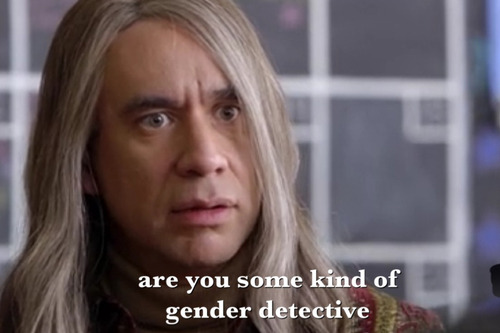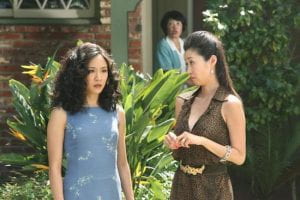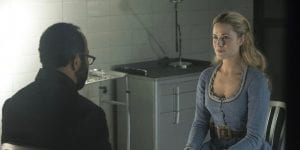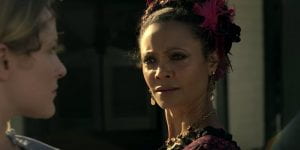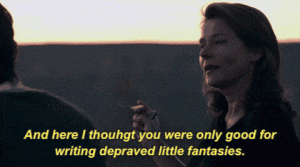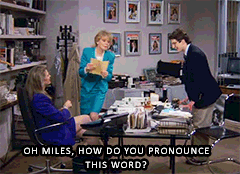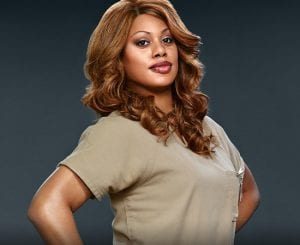Gender plays an interesting role in Orange is the New Black, since almost everyone in the show is female. All prisoners at Litchfield are female, and most of the guards are male. Obviously, since the story is told from Piper’s point of view, all the guards are seen as antagonists (and all of the male guards are portrayed as perverted and sex-obsessed in some way), but the three female correctional workers also play a significant role in examining the stereotypes of working women.
Officer Fischer is very empathetic towards the prisoners, as seen in her buying Miss Rosa a Coke at her chemotherapy appointment. Her voice is often soft and kind, she is new to the prison and she is willing to let the prisoners bend some rules. However, she is choked by a prisoner after trying to enforce a rule, a product of both the strong emotions at the time and, likely, the image of the officer as someone that could be an easy target. In this way she is seen as the caring one, yet also someone that can be taken advantage of and manipulated, as are many women beginning their career. They are uncertain of their future or concerned about causing others to dislike them, so they “play nice” to avoid creating hostility, instead compromising their respectability.

Officer Fischer is known for being kind to the prisoners – arguably to a fault.
The other female guard is older, has a hardened face and a sharp tone. She is the foil to Fischer and snaps at prisoners over tiny infractions. However, even she is empathetic to the fact that the female prisoners have specific needs and expresses concern for kids’ futures when Scared Straight visits Litchfield. She represents the women who have worked long enough in a male-dominated career or job that they recognize they have to overcompensate to prove themselves, yet still care.

Another female guard is much less caring, yet still views the prisoners as human.
Finally, Fig, the warden, is a power-happy, cold female who is unsympathetic to anyone, even the other administrators. She repeatedly tells the prisoners that she doesn’t care about their complaints and takes actions only to improve the prison when journalists begin asking questions. She represents the stereotypical powerful female, someone a bit like Petra from Jane the Virgin, who has had to harden herself and get good at manipulating others in order to achieve success.

FIg is cold and cares only about the prison avoiding the spotlight.
Looking at these three women, all struggling to make themselves in a very male-heavy arena, it begs the question – is it possible for a kinder, caring female like Fischer to be rise to the success of someone like Fig? Does a woman have to be as uncaring as Fig in order to achieve success? And finally, is Fig a product of a system that forced her to be cold or was that how she was before, allowing her to be successful?

